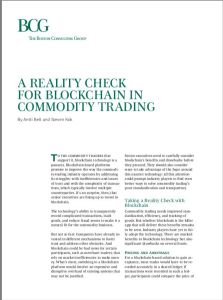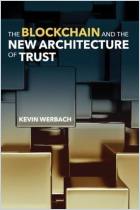Join getAbstract to access the summary!

Join getAbstract to access the summary!
Antti Belt and Steven Kok
A Reality Check for Blockchain in Commodity Trading
Boston Consulting Group, 2018
What's inside?
Blockchain could potentially transform the commodities trading sector, but pitfalls abound.
Recommendation
Blockchain, the technology of the distributed ledger, continues to make inroads into numerous industries, especially the financial services sector. But as with any new innovation, blockchain presents both rewards and risks: Too many early adopters get swept up in the enthusiasm and focus solely on the benefits. Boston Consulting Group professionals Antti Belt and Steven Kok cut through the hype to examine blockchain’s pros and cons in the commodities trading business. Financial executives will find this a compelling and thought-provoking analysis.
Summary
About the Authors
Antti Belt and Steven Kok are Boston Consulting Group professionals.


























Comment on this summary